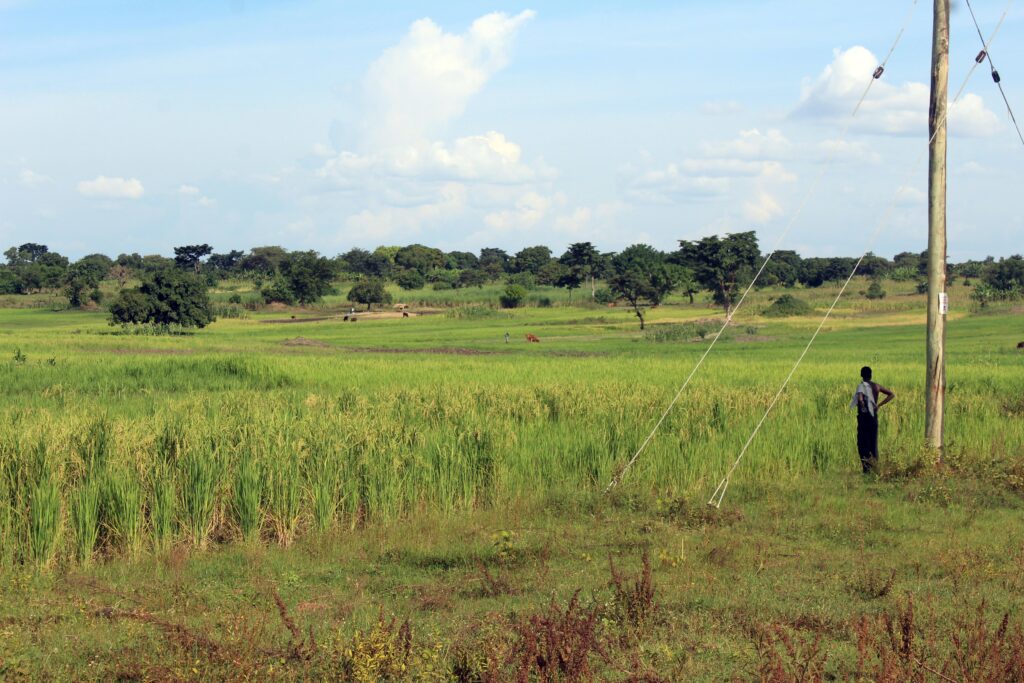By George Bita
Farmers growing rice in wetlands in Busoga have downplayed eviction orders given by the National Environment Management Authority (NEMA).
Almost all wetlands visited by New Vision over the weekend had extensive rice fields with young boys in the vicinity scaring away birds that feed on the maturing crop.
At Budumbula marshland in Jinja district, the swamp not only contains rice but also sugarcane at different levels of growth.
Daudi Sooka, a rice farmer in Budumbula wetland suggested that before the government chases away farmers from swamps, it would be fair to start with investors constructing factories in swamps.
“These investors are a worse evil than mere rice farmers. They are pouring chemicals into wetlands which go on to pollute the environment so let them be evicted first,” Sooka argued.
He noted that whereas some farmers equally use pesticides and fertilisers, most of them may not be as dangerous as industrial effluents.
Moses Batwala, the Jinja district chairman lamented that farmers have cleared natural vegetation cover and replaced it with crops which affects the natural setup.
Ernest Nabikamba, the Jinja city environment officer, assured that arrangements are in place to demarcate all wetland boundaries so as to evict the errant farmers as well as all other encroachers.
Richard Balonda, a rice farmer at Igogero swampland located between Bugweri and Bugiri districts argued that his family had used the wetland for ages and there was no way he would leave the place.
Hilda Bageya, another farmer at Namadope wetland in Luuka district shared similar sentiments over the historical use of the water-logged gardens to improve her family’s livelihood.
“I get an estimated 10 bags of 100kg capacity from the marshy rice field every harvest season. This crop has enabled me to send my children to school and no one should stop me from farming,” Bageya insisted.
Yusuf Namadowa, a farmer at Busulumba swamp in Kaliro district said most farmland in Busoga was being used to grow sugarcanes which left wetlands as the last resort to sustain the sub-region’s food demands.
“If the wetlands are to be taken away from us we are doomed. Where else will farmers get ample space for growing food crops?” Namadowa wondered.
Ezra Gabula, the Iganga district chairman noted that Walugogo wetland in the urban neighbourhood has lost all natural vegetation as a result of majorly rice farming.
“Unfortunately, this is public land and the encroachers should vacate this territory so as to rejuvenate the natural marshland. The onus is on council to enforce the directives in place in a bid to restore nature,” Gabula emphasised.
Apollo Musita, the Namutumba district agricultural officer, observed that the water and environment ministry had started demarcation of wetlands in the area which could lead to eviction of any encroachers.
“Wetlands are a public resource vital in regulating flooding, giving us rain, keeping important plants and animals. The destruction of swamps is among the reasons causing climate change,” he said.
President Yoweri Museveni, while presiding over Labour Day celebrations at Namutumba district headquarters last month said the time was now for those growing rice in wetlands to leave. According to Museveni, the rice farmers would be assisted by the government using the Limoto swamp-model to set up fish ponds near wetlands so as to boost their household incomes.






